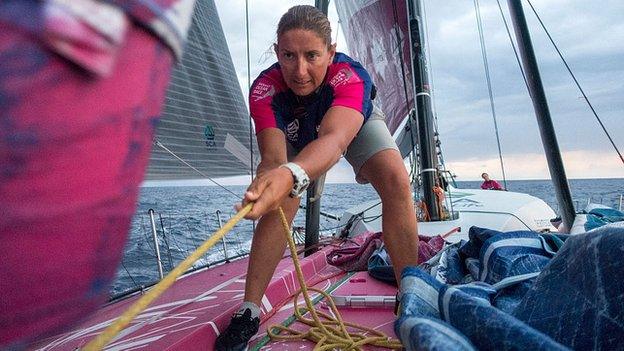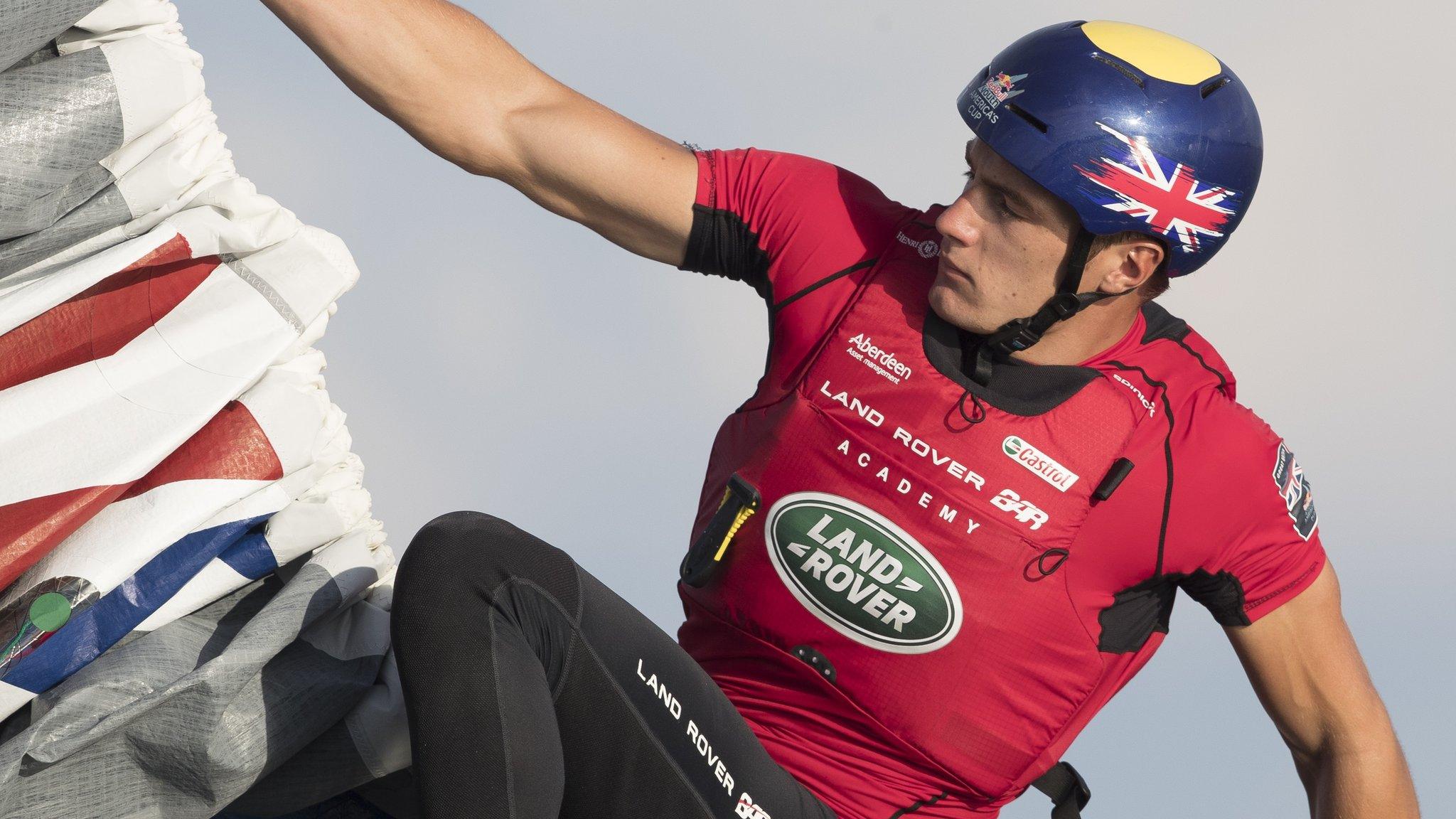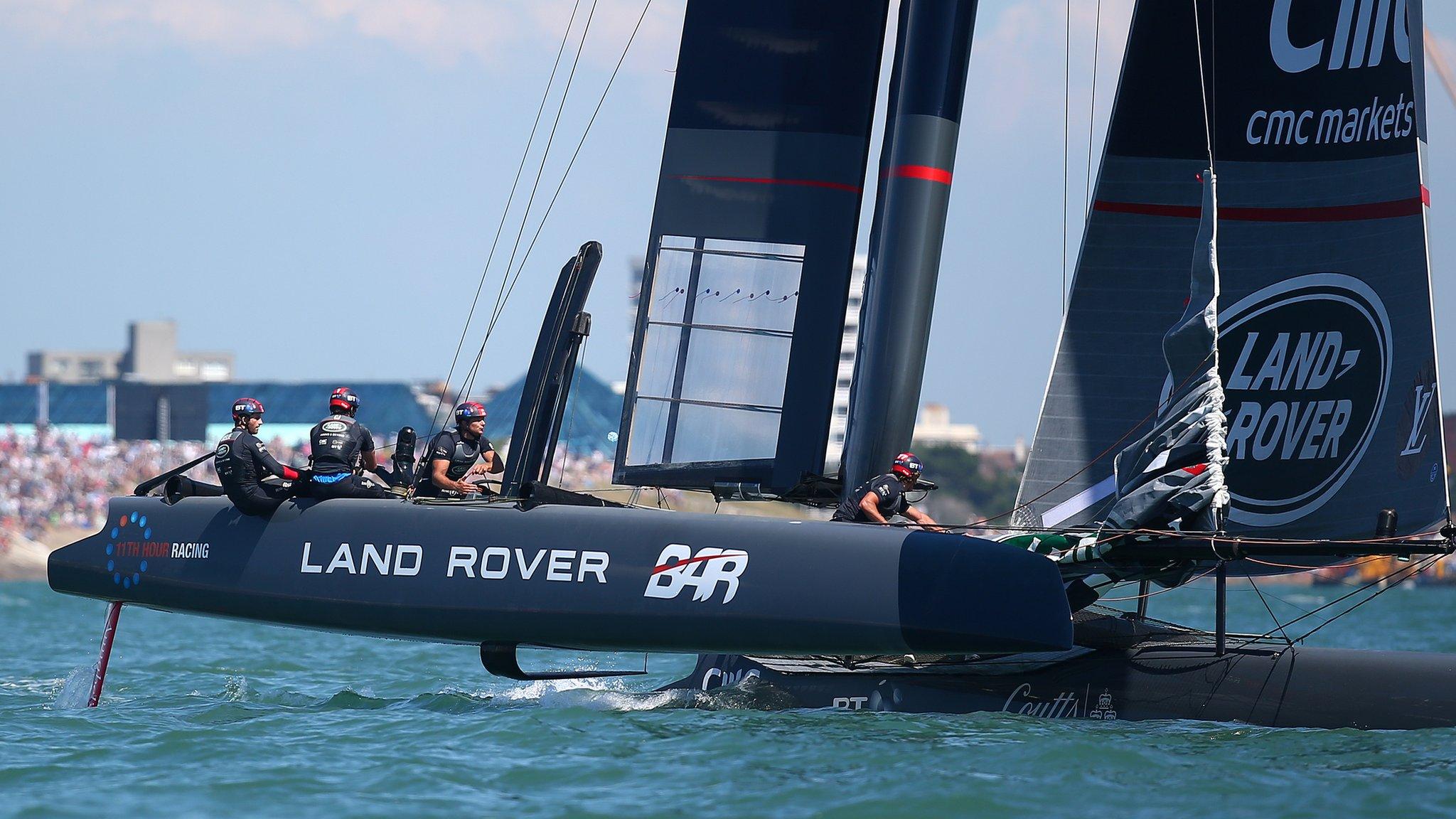Women's Sport Week: Annie Lush on why things are changing for female sailors
- Published
- comments
Brighter future for women in sailing?
The tide is turning for female sailors.
That is according to British Olympian Annie Lush, who has been campaigning for more opportunities for women in the sport.
Organisers of the round-the-world Volvo Ocean Race have changed the rules, external for the 2017-18 event to encourage more female competitors.
All-male teams will be restricted to seven members, mixed crews can have up to 10, while female-only teams can be made up of 11 sailors.
Previously, an all-male crew could be made up of eight members.
"For sure there are physical differences between men and women, but then not all women are the same size," said Lush.
"What we need to do is create opportunities so to that we can close that gap. We don't want to be given it. We need to work for it, but we need the opportunity."
Lush, 37, has been racing full-time on the Olympic circuit since 2002 and competed on the World Match Racing Tour as well as the professional circuits. She competed in London 2012 and has been Women's Match Race champion three times.
She was part of Team SCA who became the first all-female crew in 25 years to win a leg of the Volvo Ocean Race in 2015.
Following the team's success, members of the crew launched the Magenta Project, external to offer support, training and guidance for women in sailing.
"It is a sport that rewards experience, a lot, and there are obviously very physical elements to the sport as well," Magenta Project director Lush told BBC Sport.
"In the past few years the kind of boats that have been developed are incredible, they are very fast but they are also very physical so I think some of the arguments have been that they require a certain level of strength that maybe girls don't have.
"I think with Team SCA going round the world in the Volvo Ocean Race, that was something we set out to do to see if that was really true.
"We ended up winning a leg of the race and coming third overall so I think we showed it is possible."
What is the Volvo Ocean Race?
Held every three years
The 2017-18 contest begins in Alicante, Spain in October
Finishes in The Hague, Netherlands in June 2018
In total, the 11-leg race will visit 12 cities in six continents
Those cities are: Alicante, Lisbon, Cape Town, Melbourne, Hong Kong, Guangzhou, Auckland, Itajaí, Newport, Cardiff, Gothenburg, and The Hague.
A maximum of eight teams will compete.
Caffari - record-breaking yachtswoman

Dee Caffari competed in the Volvo Ocean Race in 2014-15
In 2006, Briton Dee Caffari became the first woman to sail single-handedly and non-stop around the world.
The 44-year-old was a crew member aboard Team SCA alongside Lush in 2014-15.
This time around she will skipper the 'Turn the Tide on Plastic' team, which will be a mixed youth team with a focus on sustainability and a 50-50 crew.
This comes as the race provides a new commitment to youth sailing, with a rule that two crews must be under the age of 30 at the end of the race in June 2018.
And Caffari says that although she was against the idea of forcing female sailors into the sport, this has been a positive step.
"I think this rule change has been a very clever way of doing it. It's not making it happen, it's a decision, you can change the crew combinations each leg and I think as people experience sailing in a mixed crew they'll see what a nice environment it is," she said.
"It really does lift the skill level of the girls that have less experience than the guys. A mixed environment is actually how I've spent most of my sailing career and it's a really good environment to be in."
- Published22 June 2017

- Published26 May 2017
